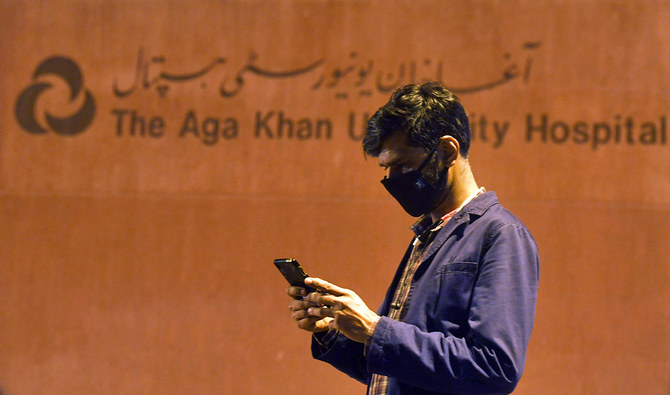ISLAMABAD: Pakistan’s National Institute of Health (NIH) issued a monkeypox alert on Monday, as global health officials have sounded the alarm over rising cases in Europe and elsewhere of a type of viral infection more common to west and central Africa.
As of Saturday, 92 confirmed cases and 28 suspected cases of monkeypox have been reported from 12 member states that are not endemic for the virus, the UN agency said, adding it will provide further guidance and recommendations in coming days for countries on how to mitigate the spread of monkeypox.
There are so far cases reported in Belgium, France, Germany, Italy, the Netherlands, Portugal, Spain, Sweden and the United Kingdom, as well as the United States, Canada and Australia.
Monkeypox is an infectious disease that is usually mild, and is endemic in parts of west and central Africa. It is spread by close contact, so it can be relatively easily contained through such measures as self-isolation and hygiene.
“All the national and provincial health authorities and other stakeholders ... are advised to remain on high alert for any suspected case,” the NIH said in an advisory. “Timely detection and notification is important for prompt implementation of preventive measures. All public and private hospitals to ensure readiness for isolation and treatment.”
The risk to the general public is low at this time, a US public health official told reporters at a briefing on Friday.
Monkeypox causes symptoms including fever, aches and presents with a distinctive bumpy rash. It is related to smallpox, but is usually milder, particularly the West African strain of the virus that was identified in a US case, which has a fatality rate of around 1 percent. Most people fully recover in two to four weeks, the official said.
The virus is not as easily transmitted as the SARS-CoV-2 virus that spurred the global COVID-19 pandemic.
Experts believe the current monkeypox outbreak is being spread through close, intimate skin on skin contact with someone who has an active rash. That should make its spread easier to contain once infections are identified, experts said.












